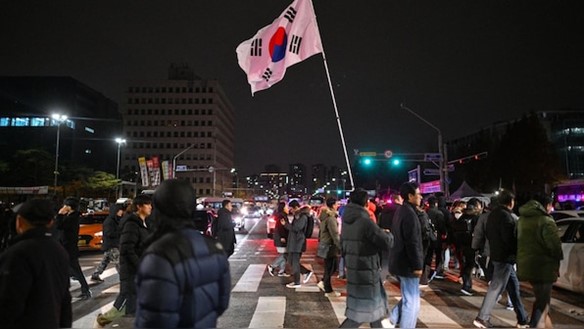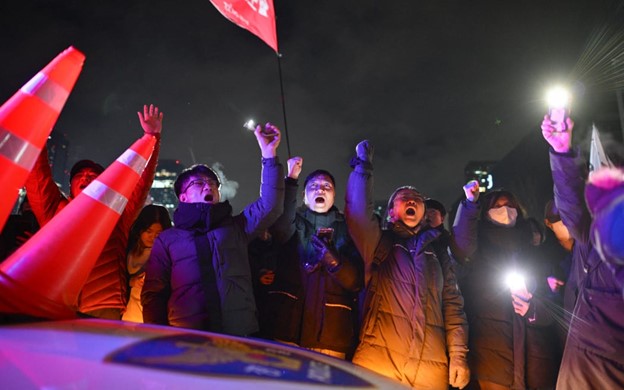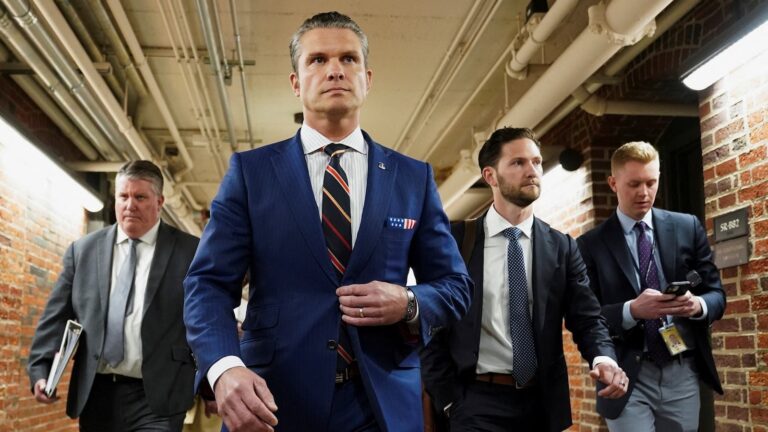South Korea experienced a whirlwind six hours of political chaos on December 4 when President Yoon Suk Yeol declared martial law, only to revoke it after facing immense public backlash and parliamentary intervention. The dramatic events have plunged the nation into a deep political crisis, raising questions about the future of Yoon’s presidency, his party, and South Korea’s democracy.
The Declaration of Martial Law
In an unexpected late-night televised address, President Yoon announced martial law, accusing the opposition Democratic Party of “anti-state” activities and sympathizing with North Korea. The decree granted sweeping powers to the military, banning political activities, protests, and public dissent. Yoon justified his actions as a response to opposition efforts to impeach top prosecutors and reject a proposed government budget.
According to the sources of Leaders team, the announcement sent shockwaves through the nation, evoking painful memories of South Korea’s authoritarian past. Protesters gathered outside the National Assembly, and lawmakers—crossing party lines—stormed into the parliament, bypassing deployed soldiers, to unanimously block the martial law decree in an extraordinary late-night session.
Immediate Backlash
The president’s move drew widespread condemnation. Members of his own conservative People Power Party criticized the declaration as unconstitutional, with party leader Han Dong-hoon demanding Yoon step down from the party. Opposition leaders escalated their calls for impeachment, while the national police launched investigations against Yoon for alleged treason. Protests have continued to grow, with South Korea’s largest labor union declaring an indefinite strike until Yoon resigns.
By dawn, Yoon capitulated, lifting martial law and ordering the withdrawal of troops. However, his attempts to justify the declaration as a means to curb legislative “manipulation” by the opposition did little to quell the public’s anger.
Political Implications

Yoon’s presidency, already mired in scandal and political deadlock, now faces existential threats. Opposition parties have moved forward with impeachment measures, which could pass in parliament and lead to a constitutional court review. Meanwhile, high-ranking officials, including Yoon’s defense minister and chief of staff, have resigned, signaling fractures within the administration.
As per the sources of Leaders team, the crisis has paralyzed South Korea’s government at a critical time for one of the world’s largest economies. The U.S., South Korea’s key ally, expressed “grave concern” over the declaration but welcomed the swift lifting of martial law, emphasizing the importance of democratic principles in their alliance.
Historical and Cultural Context
Martial law is a rare and alarming measure in modern South Korea, a vibrant democracy since the 1980s. While the nation’s democratic institutions have flourished, its painful history of military dictatorships and deadly crackdowns on protests remains fresh in public memory. The last instance of martial law was declared in 1980 during a student-led uprising, underscoring why the public vehemently opposes any return to autocracy.
Protesters on the streets chanted slogans rejecting a return to authoritarianism, with signs reading, “We condemn Yoon Suk Yeol’s illegal martial law.” South Koreans, buoyed by decades of democratic progress, appear unified in their resistance against any perceived threat to their hard-won freedoms.
What’s Next?
President Yoon faces immense pressure as calls for his resignation and impeachment grow louder. The coming days will determine whether his administration can survive the political fallout or if South Korea will head toward a new leadership. With the nation on edge, the crisis marks a critical test of its democratic resilience and political maturity.







